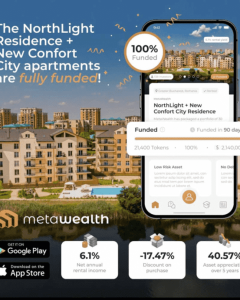Korean Housing Market Overpriced Relative to Income: Concerns Raised by Central Bank
The Central Bank of Korea expresses concern over the overvaluation of the housing market in relation to income. With a house price-to-income ratio of 26, it would take the average worker 26 years to save for a 90 m2 house. Learn more about the challenges in the Korean housing market.
The Central Bank of Korea (BoK) recently expressed its concern regarding the overvaluation of the housing market in Korea, in relation to the income of the people. According to its quarterly report to Congress, the BoK highlighted that the house price-to-income ratio has reached 26. This implies that the average worker would need to save their entire salary for a staggering 26 years in order to be able to afford a house with an average area of 90 m2.
Compared to previous years, this ratio has shown a significant increase. In 2019, it stood at 17.6, followed by 17.4 in 2020, 23.6 in 2021, and a worrying 29.4 in 2022. The BoK report clearly states that despite income levels, housing prices remain consistently high, suggesting that they do not align with the underlying economic conditions.
Since April of this year, there has been a steady increase in household loans issued by banks, and this trend has raised concerns among financial experts. In just five months, loan amounts have risen by more than 25,000 billion won ($18.8 billion), with residential mortgages being a primary contributor. Furthermore, it is predicted that household loans will continue to rise in the short term during the second half of this year, as trading activity rebounds.
The BoK report emphasizes that unlike major economies, South Korea has experienced a continuous increase in household debt without any significant reduction. This growing debt burden has now reached a critical level that threatens both financial and microeconomic stability. Excessive levels of household debt are detrimental to the Korean economy, hindering long-term growth and exacerbating wealth inequality.
In order to tackle this pressing issue, the BoK emphasizes the necessity of coordinated cooperation between financial authorities. It is crucial to sustain efforts aimed at reducing debt in the medium to long term. As a result, the BoK has once again signaled its intention to maintain a tightening stance in policy interest rate management, citing current inflation as a contributing factor. The surge in oil and raw material prices, coupled with other uncertainties, has also been identified as reasons for this approach.
In August, the BoK made the decision to keep the base interest rate at 3.5% for the fifth consecutive time. BoK Governor Rhee Chang-yong further indicated the bank's intention to adopt a tightening monetary policy stance in order to stabilize household loans, protect families, and control inflation.
In conclusion, the Central Bank of Korea (BoK) has raised valid concerns regarding the overvaluation of the housing market in Korea. The house price-to-income ratio remains alarmingly high, and household debt has been steadily increasing without any signs of reduction. The BoK recognizes that excessive levels of household debt pose a significant threat to both financial and microeconomic stability.
In order to address this issue, the BoK emphasizes the necessity of coordinated cooperation between financial authorities. Efforts to reduce debt should be sustained in the medium to long term, and a tightening monetary policy stance is warranted to stabilize household loans and control inflation.
Korean Housing Market Overpriced Relative to Income: Concerns Raised by Central Bank
Greece Real Estate Market: Residential Slowdown Ahead
Experts predict a slowdown in Greece's residential real estate market, with house price growth expected to decelerate in the coming months and years.
Experts predict a slowdown in Greece\'s residential real estate market, with house price growth expected to decelerate in the coming months and years.
Read morePortugal Real Estate Market: Luxury Trends for 2024
Explore the 2024 trends in Portugal's luxury real estate market, a prime destination for investors and buyers seeking exceptional opportunities.
Explore the 2024 trends in Portugal\'s luxury real estate market, a prime destination for investors and buyers seeking exceptional opportunities.
Read moreFrench Property Market: Recovery Signs Amidst Challenges
Discover six key insights from notaire data on the French property market's recovery post-Covid, despite ongoing low sales and prices.
Discover six key insights from notaire data on the French property market\'s recovery post-Covid, despite ongoing low sales and prices.
Read moreMetaWealth’s $1.5M Digital Funding for Athens Real Estate
MetaWealth seeks to raise $1.5M in Greece through digital currency to develop a residential building, utilizing blockchain for secure financing.
MetaWealth seeks to raise $1.5M in Greece through digital currency to develop a residential building, utilizing blockchain for secure financing.
Read moreLisbon Apartments: Europe’s Most Affordable Rentals
Explore why Lisbon apartments are the cheapest in Europe, as rents rise 4.3% across the continent, according to the HousingAnywhere Index.
Explore why Lisbon apartments are the cheapest in Europe, as rents rise 4.3% across the continent, according to the HousingAnywhere Index.
Read moreReal Estate Facts: Tiny Homes Trend in the Netherlands
The Netherlands sees a rise in homes under 50 sqm, including "flex homes." Yet, many citizens still prefer larger living spaces, warns Netherlands Environmental Assessment Agency (PBL).
The Netherlands sees a rise in homes under 50 sqm, including "flex homes." Yet, many citizens still prefer larger living spaces, warns Netherlands Environmental Assessment Agency (PBL).
Read moreAustralia real estate market: Sydney Home Prices Dip Amid Affordability Concerns
Explore the October trends in the Australia real estate market as Sydney home prices decline for the first time in nearly two years.
Explore the October trends in the Australia real estate market as Sydney home prices decline for the first time in nearly two years.
Read moreFrance’s Real Estate Market: Home Prices Decline Slows in 2024
New notaire data reveals a slowing decline in house prices across France, with a -0.6% drop in early 2024, signaling potential market stabilization.
New notaire data reveals a slowing decline in house prices across France, with a -0.6% drop in early 2024, signaling potential market stabilization.
Read moreNew Zealand Housing Market Needs Summer Surge for Recovery
ANZ Bank warns that New Zealand's stagnant housing market requires a summer sales boost to clear listings and support price recovery by 2025.
ANZ Bank warns that New Zealand\'s stagnant housing market requires a summer sales boost to clear listings and support price recovery by 2025.
Read more














